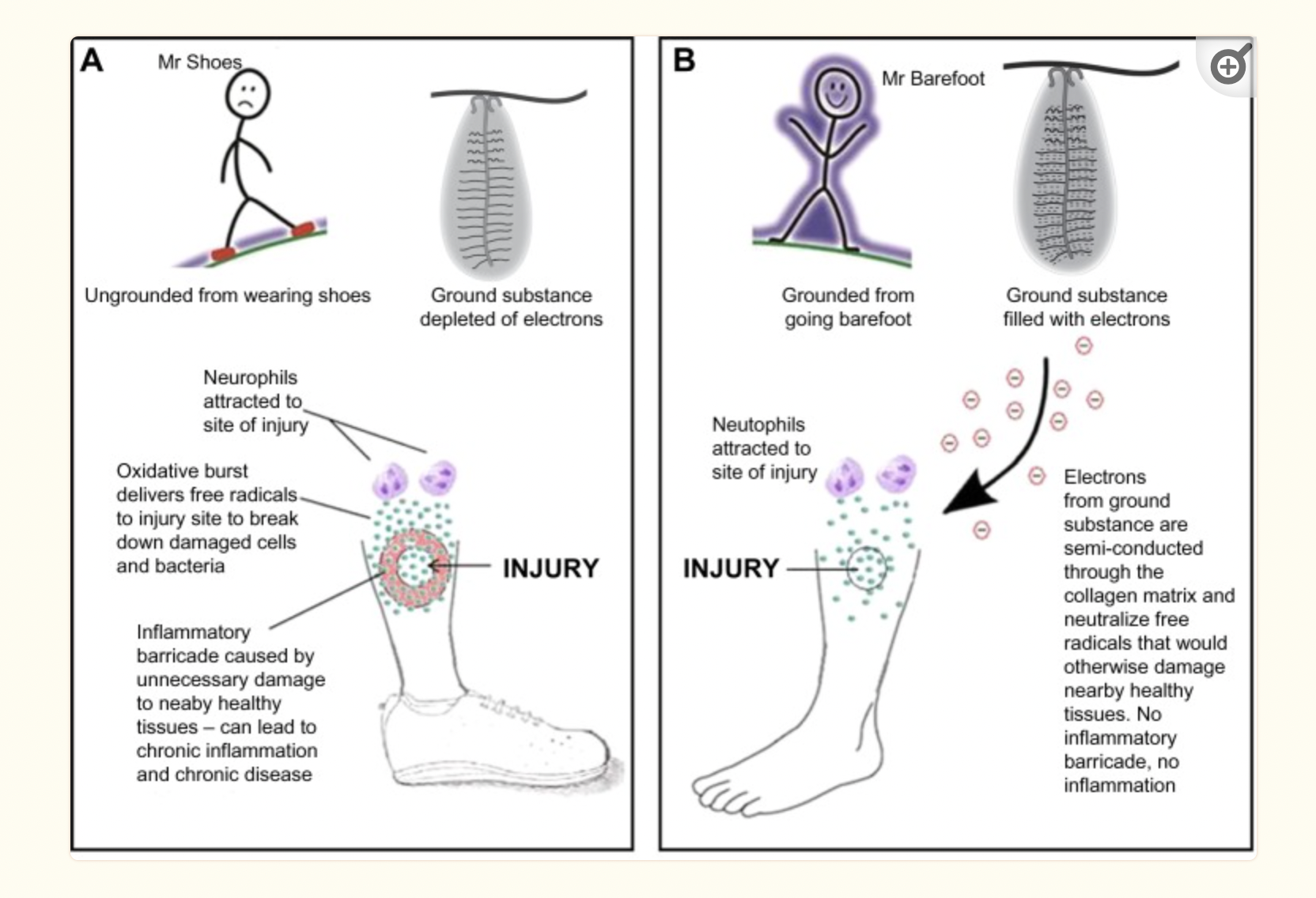Click here to view the original article publishing in the Journal of Inflammation Research.
In today's modern world, chronic diseases have become a significant health concern, with inflammation identified as a common underlying factor. Research has linked inflammation to a wide range of chronic conditions, including heart disease, cancer, stroke, diabetes, and arthritis. Despite the vast amount of research conducted on inflammation, there remains a lack of comprehensive theories explaining its connection to chronic disease.
Grounding, also known as earthing, has emerged as a novel approach to understanding and addressing chronic inflammation. By reconnecting with the electron-enriched Earth, grounding has shown potential in modulating the body's inflammatory response and promoting overall health and well-being. This article explores the research findings and implications of grounding in the context of chronic inflammation and disease prevention.
The immune response, characterized by the release of reactive oxygen species (ROS) and reactive nitrogen species (RNS), plays a crucial role in combating pathogens and facilitating tissue repair. However, incomplete repair processes can lead to persistent inflammation, contributing to the development of chronic diseases. Grounding has been shown to accelerate the healing process, reduce inflammation, and promote faster wound healing, suggesting a fundamental link between grounding and immune function.
Studies have demonstrated that grounding alters the time-course of inflammatory responses, with grounded individuals exhibiting distinct profiles of inflammatory markers compared to non-grounded individuals. Moreover, variations in immune responses have been observed in laboratory animals based on their exposure to grounding, highlighting the importance of considering environmental factors in research settings.
The modern lifestyle, characterized by insulating footwear, high-rise buildings, and elevated beds, has led to a widespread disconnect from the Earth's surface. This separation from nature may contribute to physiological dysfunction and the rise of inflammatory-related chronic diseases. Grounding offers a simple yet effective solution to this problem, allowing individuals to recharge their bodies' antioxidant defense systems by direct contact with the Earth.
Electrons from the Earth serve as potent antioxidants, balancing the ROS and RNS involved in the immune response. By replenishing the body's electron reservoirs, grounding promotes cellular health and supports immune function, reducing the risk of chronic inflammation and associated diseases.
Autoimmune disorders, characterized by the immune system's attack on the body's own tissues, have shown promising responses to grounding therapy. Patients with conditions such as lupus report reduced pain and improved symptoms with grounding, highlighting its potential as a complementary treatment approach.
In conclusion, grounding offers a natural and accessible strategy for combating chronic inflammation and promoting overall health. By harnessing the healing power of nature, individuals can optimize their immune function and reduce the risk of inflammatory-related diseases. Clinicians and researchers are encouraged to explore the therapeutic potential of grounding further, recognizing it as a valuable addition to holistic health practices. As we continue to unravel the mysteries of chronic inflammation, grounding emerges as a beacon of hope for restoring balance and vitality to the body.





